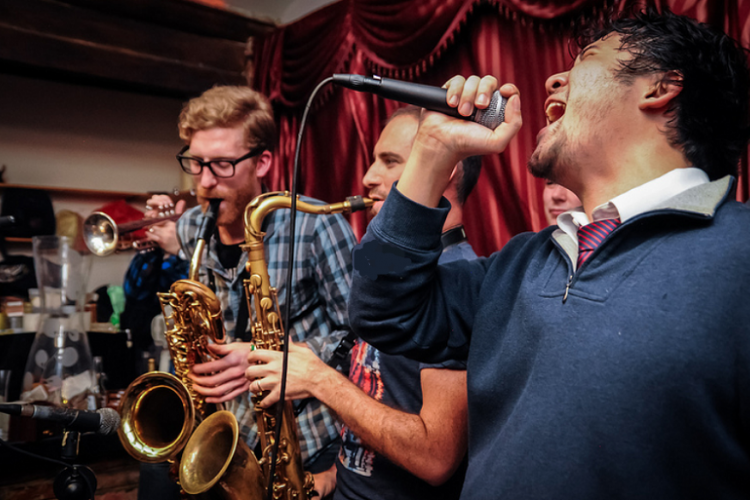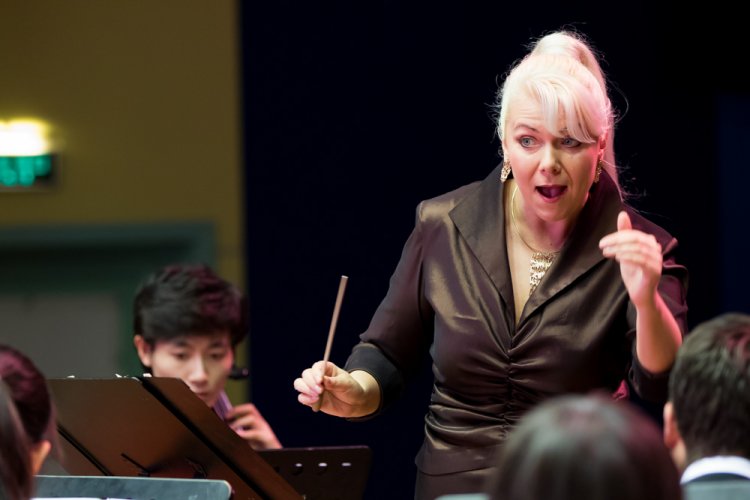Committing Journalism - Interview with Melinda Liu
The Committing Journalism session of the Beijing Bookworm's International Literary Festival started about five minutes ago, and before you start complaining about why we didn’t tell you earlier (we did by the way), let us reassure you that the session was one of the most popular of all the events associated with the festival and tickets sold out long ago. Those lucky few who did manage to get a ticket, will currently be listening to three veteran journalists: Rob Gifford (NPR), James Kynge (Financial Times) and Jonathan Watts (The Guardian), discuss the ethics, challenges and joys of being a journalist in China. Melinda Liu, currently Newsweek Beijing Bureau chief and president of the Foreign Correspondents' Club of China, is moderating the session. Former that’s Beijing staff writer Alice Xin Liu caught up with Melinda before the session to ask her a few questions about being a journalist in China.
tbjblog: What is the biggest surprise that you have had during your time in China?
ML: That mainland Chinese could become so greedy and so tacky so fast. The level of bad taste and money-grubbing that you see here today took many decades of nurturing for other cultures to achieve – not just the West but also places like Taiwan. When I moved here to open the Newsweek bureau in 1980, people still spent a lot of energy trying to seem egalitarian. This weekend on the highway I passed a wedding motorcade with dozens of brand-new black Mercedes' trailing a white stretch Hummer festooned with roses. I found it revolting — and was mesmerized.
tbjblog: What do you personally fear the most in this climate of opening up and reform in China?
ML: That Chinese leaders will fail to learn the tragic economic lessons learned by developed countries. That the environment will become so toxic that the whole world suffers. That poor Chinese will become even more marginalized than they were in pre-Liberation days. That rule of law will never happen. That when I move back to the States and go to buy a sofa, the only thing available will be a hideous, gigantic poufy leather thing made in China.
tbjblog: How can you sum up being a journalist in China, if you were to give examples from your everyday life?
ML: It's exhausting. In my experience, China is the world's most dynamic story where people aren't shooting at me. But when I report in Iraq or Afghanistan, there's always a good reason for the adrenaline to start pumping. In a war, that kind of adrenaline can keep you going for, say, two or three months non-stop. But here you need to maintain a very intense energy level for years. You need to be on call, all systems go, all the time.
tbjblog: When you were young, what did you dream about (free for you to interpret in any way you wish!)
ML: I dreamed of flying. I didn't have wings but I managed to fly. It felt like swimming in the air. It was hard work. Sometimes I would aim for a window and wind up banging into a wall. Or I'd hover near the ceiling, desparately trying to find a way out. Probably that's what moths feel like when they fly towards the flame.
tbjblog: Is being a journalist in China as frightening and dangerous as it is made out to be?
ML: Being a foreign correspondent in China isn't that dangerous. My experience witnessing the "shock and awe" bombing of Baghdad, from the inside, was dangerous. Getting shot in the leg in Manila was dangerous. Guns and other weapons aren't prevalent at the grassroots in China, so some of the "normal" things that make a story dangerous aren't here. What's dangerous here is driving. When my husband and I took a 7,000-km road trip through China we saw horrific things on the highways. Speeding in reverse down an expressway entrance ramp is so common that even my husband has learned to do it as if it were a normal part of driving. Now, that's frightening.
tbjblog: What books do you think you/others should be writing at a time when China is heading towards increased economic expansion and global status? Where do you see yourself in this culture?
ML: The books people should be writing are good books. Books that tell us something we want to know. I often find myself working alongside foreign correspondents who all seem to be writing books. That was true in China in the early 80's when American news agencies just started setting up shop after the normalization of Sino-U.S. ties. In Iraq during Saddam's fall. Here in China before the Olympics. Of all the books that have been and are being written during such historic times, some have been stupendously atrocious and most will probably be mediocre. Personally, I would have to become much more disciplined before I could write a book, even a mediocre one.
Mar 12
Beijing Bookworm International Literary Festival – Committing Journalism: James Kynge, Jon Watts and Rob Gifford
For more information about the literary festival see the official festival site. Follow this link for details about the 2008 Australian Writers' Week. RMB 50.
12.30-1.30pm. The Bookworm (6586 9507)
Links and Sources:
Beijing Bookworm: Image of Melinda Liu






